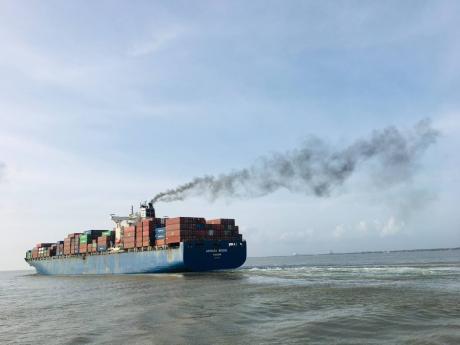IMO adopts revised strategy to decarbonise shipping industry
The International Maritime Organization (IMO) adopted a revised strategy to decarbonise global shipping at the Marine Environment Protection Committee (MEPC 80) in London recently.
The new strategy includes enhanced targets to tackle harmful emissions from vessels and a common ambition to reach net-zero greenhouse gas (GHG) emissions from international shipping near 2050. Net-zero is the balance between the amount of GHG released into the atmosphere to that which is removed.
The 2023 IMO Strategy on Reduction of GHG Emissions from Ships also holds the organisation to guarantee an increase of alternative zero and near-zero GHG fuels by 2030 and establishes indicative checks on progress for 2030 and 2040. The IMO is the United Nations specialised agency with responsibility for developing global standards for shipping and supporting countries to implement those rules.
Following the decision, IMO Secretary-General Kitack Lim said the revised strategy’s adoption is a monumental development and opens a new chapter for maritime decarbonisation. “At the same time, it is not the end goal. It is in many ways a starting point for the work that needs to intensify even more over the years and decades ahead of us,” adding, “We have a clear direction, a common vision, and ambitious targets to guide us to deliver what the world expects from us.”
The agreed goals directing the GHG Strategy further include carbon intensity of the ship to decline through further improvement of the energy efficiency for new ships, with a review to strengthen the energy efficiency design requirements for ships. It also includes the ambition for overall decline of carbon intensity of international shipping to reduce carbon emissions per transport work by at least 40 per cent by 2030 compared to 2008 levels.
What is more, the IMO aims to increase uptake of zero or near-zero GHG emission technologies, fuels, and/or energy sources to represent at least five per cent of the energy used by global shipping by 2030, with an ambition to achieve 10 per cent if possible.
The strategy also highlights indicative checkpoints to achieve this. The first is the reduction of the total annual GHG emissions from international shipping by at least 20 per cent by 2030 and at least 70 per cent by 2040 when compared to 2008 levels.
There is also a requirement of candidate measures to be developed and finalised, which comprises a technical element, regulating the phased reduction of the marine fuel’s GHG intensity. An economic element will also be established based on a maritime GHG emissions pricing mechanism.
In response to the announcement, president and chief executive officer of the World Travel and Tourism Council Julia Simpson said the council welcomes the “ambitious plan”, which is a crucial milestone for the cruise industry and the planet. “We urge governments to actively support sustainable marine fuels, shoreside power, and other net-zero technologies in all shipping sectors. Collaboration between governments and the industry is vital to achieve net-zero emissions. Sustainable growth in travel and tourism, including aviation, rail, and cruise liners, remains a key objective for the sector worldwide.”

